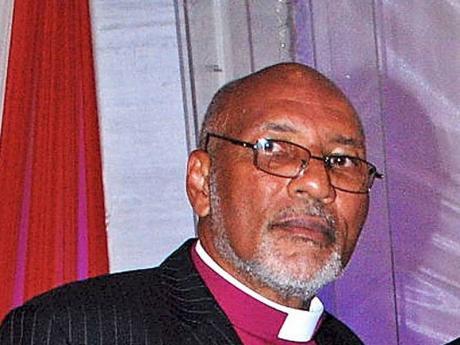Jamaica plagued by dishonesty and corruption - Bishop Gregory
WESTERN BUREAU:
The Anglican Church is of the view that despite the recent efforts of the Government's Economic Growth Council (EGC) to create investment opportunities and a sense of financial stability, Jamaicans are still suffering from the effects of a widening social chasm, corruption, and crime.
The Right Reverend Dr Howard Gregory, bishop of the Anglican Diocese of Jamaica and the Cayman Islands, made the argument in his keynote address at the opening ceremony for the Diocese's 147th annual synod (gathering of laity) in Montego Bay on Tuesday.
'FIVE IN FOUR'
"While we have achieved a measure of economic stability in recent years, and there is in place a high-profile Economic Growth Council whose mantra is 'five in four,' there is a widening of the economic and social gulf between different segments of the society," the bishop said. "There is still no national consensus around the direction in which the developmental thrust of this nation will move."
"The culture of dishonesty and corruption continues to thrive, there is a deepening level of decadence in our nation, manifested in terms of our moral values, indiscipline, a lack of civility and the high level of violence and murder," said Bishop Gregory. "...but we must understand that the dehumanisation of our people is not just what criminals do. It is also what our frustrating bureaucratic system of governance and business does to those citizens who, in their contact with public and private institutions, are treated with disrespect and sheer frustration, or who are denied justice."
'Prosperity and growth for whom?'
The Reverend Dr Howard Gregory has said that the ideal vision that is often presented about benefits for all citizens within a growing economy does not match the reality that many poor people face.
"When we talk about prosperity and growth in this country, we must ask the question, prosperity and growth for whom? We cannot continue to advance the trickle-down notion that once the economy grows, everyone will prosper; the facts belie this assertion as it relates to the widening gap between the rich and the poor in this country," the bishop noted.
"Many of the global indicators of growth used by some of our major global funding, developmental, and rating agencies are insensitive to the conditions and plight of the masses of citizens. To my mind, there is a level of anger, a sense of alienation and disaffection among workers and citizens at large, who will not be prepared to be disregarded or be treated as mere statistics on the margins of society forever," the churchman added.

